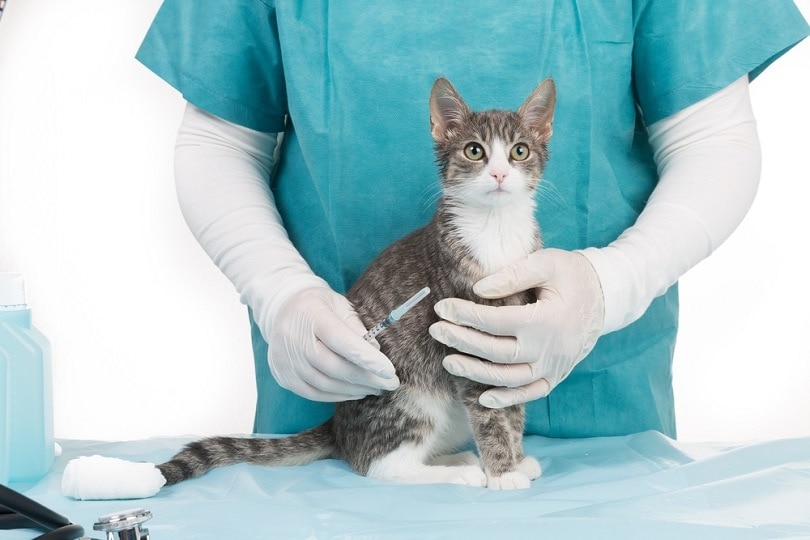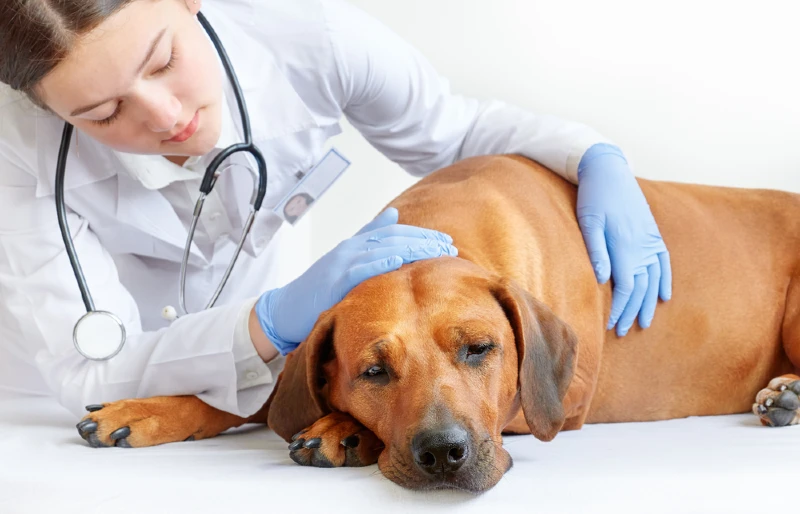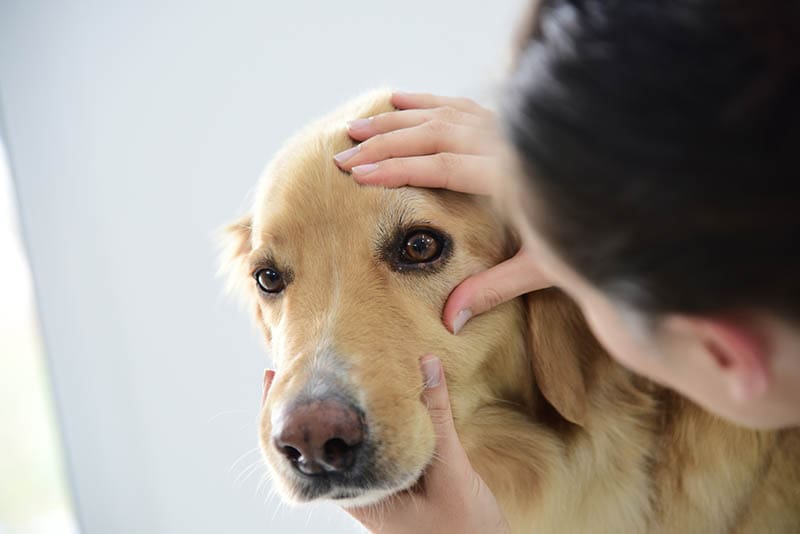My Dog Ate My AirPods: Here’s What to Do (Vet Answer)

Updated on
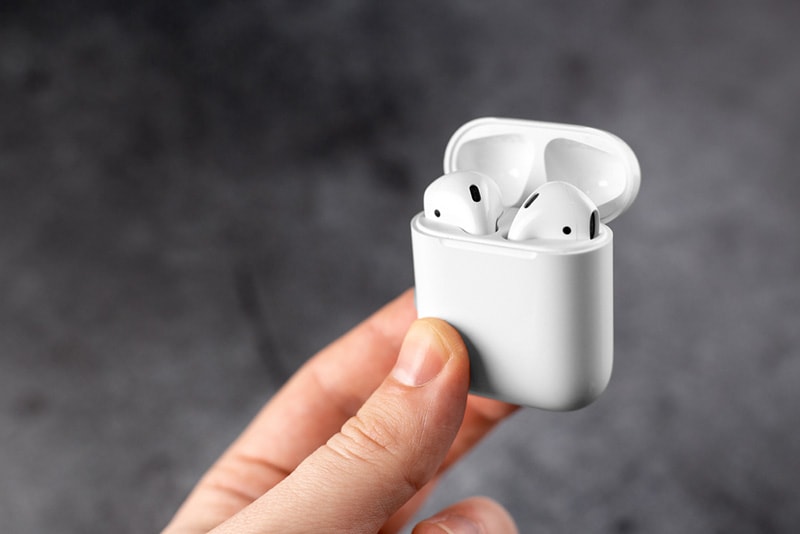
So, your dog ate your AirPods. The first thing you’re likely to do is panic—is my dog going to choke? Will the battery acid eat through their intestines? Relax! In most cases, AirPods will pass through without incident, and if you’re really lucky, they might still work! Of course, whether or not you choose to test that theory is entirely up to you.
The number one thing that people worry about when their dog swallows something like this is the batteries. We’ve all heard the horror stories of dogs and children that have swallowed batteries and suffered horrific, sometimes fatal, complications. Although AirPods do contain rechargeable lithium batteries, they are tucked away deep within the earpiece, making the chances of them coming into direct contact with your naughty pooch quite low.
However, if your dog shows any signs of discomfort or illness after swallowing an AirPod, contact your vet immediately.
The main risks involved with swallowing AirPods are damage to the gastrointestinal tract or obstruction, but even these are fairly unlikely. The outcome may vary depending on the size of your dog and whether they chewed the AirPods or swallowed them. We always recommend contacting your vet or the relevant Poisons Hotline for further advice and guidance.
Let’s take a closer look at what to do if your dog eats your AirPods.
What Are AirPods?
Much of the world was amused when Apple brought out an amazing piece of technology in 2016: wireless headphones. We laughed at the idea that a device so easily lost or misplaced would ever become popular. Seven years later, over 100 million people worldwide own AirPods, with a similar number having wireless earphones of other brands.1 Suffice it to say, there are a lot of these tiny devices in the world just waiting to be swallowed by a mischievous hound.
For the sake of simplicity, we will refer to other wireless headphone brands as AirPods in this article, although I’m sure Apple would be horrified! Depending on the specific brand and version, AirPods are around 1½ inches long and no more than half an inch in diameter. They each contain a tiny lithium-ion battery, which is very difficult to access. If you want to change the battery after a couple of years and don’t have a degree in electrical engineering, you’ll need to send it to the manufacturer, which is why most people just replace the whole thing.
The earpieces charge wirelessly in their case, meaning they don’t even have a charging port. The overall result is a tiny piece of tech that is tough to break, which is great news for dog owners.

Dog vs. AirPods: What Do We Need to Know
Now that we know the technical specs of AirPods, let’s get back to what to do if our canine companion manages to eat one. The level of risk will depend on the following factors:
- The size of your dog
- Whether they chewed or swallowed them whole
Dog Size
If your dog is quite small (less than 10 pounds), there is an increased risk that even a small item, like an AirPod, may become lodged in the intestines, causing a blockage. If this occurs, it is highly likely that your dog will need surgery to remove the device. The larger the dog, the better the chances that the earpiece will pass through the gastrointestinal tract over the next 24–48 hours.
Chewed vs. Swallowed
If the earpiece has been swallowed whole, depending on the size of your dog, it will likely pass through without incident. If your dog has chewed the earpiece first, this may increase the risk that the battery could be exposed. The danger posed by lithium batteries is electrochemical burns, which can occur if the battery becomes lodged in the lining of the esophagus or intestine. Given how difficult it is to access these tiny batteries, the odds are against this occurring, but it is possible.
The other potential danger of the chewed-up AirPods is physical trauma caused to the esophageal or intestinal lining by sharp edges. Again, this risk is quite low, and the lining of the gut is tougher than you might think.
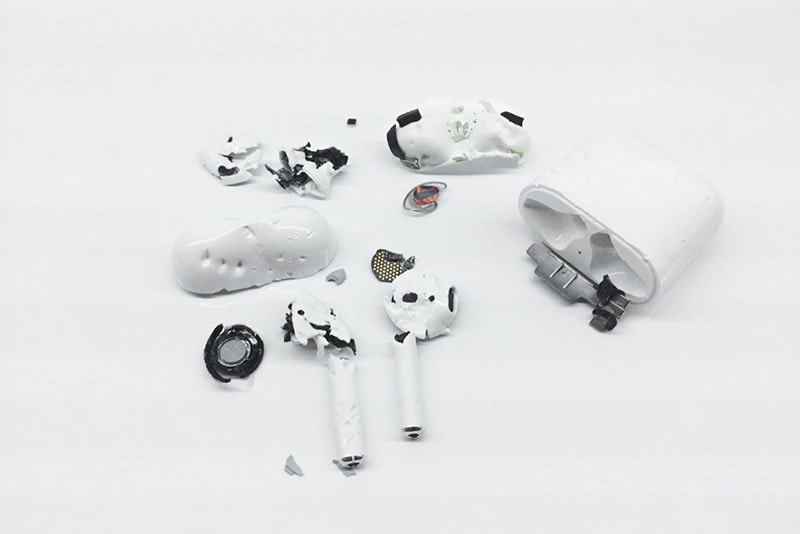
When to Contact the Vet
If your dog has eaten your AirPods and you are worried, your first action should always be to contact your vet for advice.
Armed with the information above, you may decide to wait and monitor the situation. If so, here are some warning signs that your dog needs to get to the vet urgently:
- Vomiting or difficulty swallowing
- Coughing, panting more than usual, or difficulty breathing
- Salivating or showing signs of mouth discomfort
- Lethargy or inappetence
Any of these signs could indicate that there is a problem caused by the swallowed device, and this is considered an emergency.
What About Other Batteries and Devices?
Now that we know that AirPods fortunately pose a relatively low risk if your dog decides to turn them into a snack, let’s look at some other devices and batteries. Some are emergencies, while others fall into the same “wait and see” category as AirPods.
Button Batteries
Also known as coin cell batteries or watch batteries, these are the types that are commonly found in portable electronics such as calculators, wristwatches, car key fobs, small remote controls, and even some dog toys and light-up collars. Their small size makes them easy to swallow, and it is these that are responsible for many human and animal hospitalizations. They can be either alkaline or lithium, both of which are potentially harmful.
Alkaline batteries can leak corrosive materials if damaged or cause electrochemical burns if they become lodged in the esophagus or intestines. Lithium batteries are not corrosive but cause more serious electrochemical burns.
If you suspect that your dog has eaten one of these batteries or something that contains them, call your vet immediately.

Cylinder or Rectangular Batteries
These are your AAA, D, or 9V types, and they can also be alkaline or lithium based. In the majority of cases, problems arise when dogs chew and damage the batteries, causing the liquid inside to leak. This can cause tissue damage and necrosis in the mouth and surrounding areas and be even more devastating if swallowed.
If your dog has chewed one of these batteries, don’t panic. Try to determine if they have swallowed any or all of the battery, and phone your vet urgently.
If these batteries are swallowed without external damage, they still pose a risk of causing an obstruction, and veterinary care is recommended.
Hearing Aids
Dogs eating hearing aids is surprisingly common, and fortunately, even less of a risk than with AirPods. The type of battery used in most hearing aids is zinc-air, which does not have the corrosive or electrochemical properties of alkaline or lithium batteries. Some newer hearing aids charge wirelessly like AirPods, so they will contain a tiny lithium battery too. Again, the design of hearing aids means that the battery is very difficult to access, but, as with AirPods, there is still a risk.

Should I Make My Dog Vomit?
Absolutely not. It might seem logical to want to get the object out as quickly as possible, but in cases where the risk is due to something that causes damage on contact, making your dog vomit could actually do more harm than good.
Contact your vet or the Animal Poisons Hotline for advice. Depending on what your dog has eaten, they may recommend monitoring them, or they may advise you to take your dog to the vet immediately. The advice will depend on exactly what has been eaten and how long ago.
Conclusion
Being so tantalizingly bite-sized, it is not unusual for a dog to mistake your AirPods for a treat or toy. Fortunately, in the majority of cases, they will not suffer any damage as a result, apart from being on your bad side.
However, if there are complications, they can be severe, so do not hesitate to contact your vet if your dog shows any signs of illness, discomfort, or pain, or even if you are just concerned about them. It is always better to err on the side of caution.
Chewed or ingested batteries have the potential to do great harm, so it is important to ensure that they are always kept out of reach of inquisitive pets and children.
See also:
- My Dog Ate a Cockroach: Here’s What to Do (Vet-Reviewed)
- My Dog Ate a Sock: Our Vet Explains What to Do
Featured Image Credit: Ivan_Shenets,Shutterstock



